Can’t Hurt Me by David Goggins
Biggest Message: Self-acceptance and peace. You must confront your battles before finding peace.
1.1 Challenges for Mental Mastery:
Challenge 1: Self-Discipline
- Reflect on your past challenges and current barriers.
- Acknowledge what is preventing you from progress.
- Own your story, no matter how difficult.
Challenge 2: The Accountability Mirror
- Be brutally honest with yourself.
- Acknowledge your flaws and take actionable steps to address them.
Challenge 3: Overcome Weaknesses
- List tasks or situations that make you uncomfortable—then confront them.
- Build mental resilience through small daily victories.
- Learn to speak to yourself with respect and encouragement.
Challenge 4: Achieve Excellence (Taking Souls)
- Surpass expectations and outwork competitors.
- Tap into your reserve energy to push through challenges.
- Focus on a purpose greater than yourself.
Challenge 5: Visualize Your Success
- Use visualization to mentally rehearse and prepare for obstacles.
- Build a calloused mind by enduring hardships and reflecting on your journey.
- Face fears and weaknesses head-on, using introspection to rebuild stronger.
Challenge 6: Remember Your Achievements
- Document past successes to fuel confidence during tough times.
- Recognize that victories and failures are products of mindset.
Challenge 7: Harness the Power of Your Mind
- Train your mind to tolerate discomfort and pursue growth.
- Push past perceived limits—“one more” each time redefines your baseline.
- Understand that there is no finish line; growth is ongoing.
Challenge 8: Talent is Overrated
- Prioritize consistency and effective time management.
- Approach obstacles with determination, not entitlement.
Challenge 9: Be Uncommon Among the Uncommon
- Strive to be exceptional even in a group of high achievers.
- Support and elevate others while avoiding arrogance.
Challenge 10: Empowerment Through Failure
- Conduct “After Action Reports” to learn from missteps.
- Surround yourself with honest feedback and focus on personal growth.
- Develop resilience and stop doubting your capabilities.
Challenge 11: The “What If” Mentality
- Embrace suffering as a pathway to strength.
- Beyond pain lies acceptance and mental clarity.
- Strength and flexibility, both mentally and physically, are vital for endurance.
The Compound Effect by Darren Hardy
Key Concept: Success arises from consistent small actions over time, not monumental changes.
Core Ideas:
Consistency:
- Small, repeated actions compound over time to create radical change.
- Success falters when complacency sets in after initial progress.
Choices:
- Every small decision, even unconscious ones, creates future outcomes.
- Take full responsibility for your life. Preparation + Attitude + Opportunity + Action = Luck.
- Track your habits to identify patterns of success or failure.
Habits:
- Motivation comes from knowing your “why.”
- Replace bad habits with positive alternatives through systematic steps.
- Set yourself up for success by aligning habits with core values.
Momentum:
- Building momentum is the hardest part; once established, it drives progress.
- Start and end each day with intention to maintain focus.
Influences:
- Surround yourself with positive influences; the five people you spend the most time with shape you.
- Limit exposure to negativity and seek mentorship from those who inspire growth.
Acceleration:
- Push through moments of exhaustion; they define your resilience.
- Exceed expectations during challenging times for exponential progress.
The Obstacle is the Way by Ryan Holiday
Key Message: Obstacles, when reframed, become opportunities for growth and action.
1. Perception:
- Reframe challenges as opportunities.
- Control your reactions and emotions, not external events.
- Focus on objectivity and separate emotions from situations.
2. Action:
- Face problems head-on and persist through setbacks.
- Break large goals into small, achievable tasks.
- Be pragmatic and adaptable; find creative solutions.
3. Will:
- Build mental resilience by anticipating and accepting challenges.
- Develop an “inner fortress” to withstand adversity.
- Turn obstacles into stepping stones by embracing acceptance and perseverance.
Tipping Point:
Key Concepts:
- Big changes happen quickly after a tipping point.
- Small actions can cause massive shifts over time.
- Ideas spread rapidly when they resonate (stickiness) and are shared by key influencers.
The Three Influencers:
- Connectors: Socially networked individuals who spread ideas.
- Mavens: Experts who gather and share knowledge.
- Salesmen: Charismatic individuals who persuade others effectively.
Magic Number 150:
Humans can maintain meaningful social connections with up to 150 people, based on brain capacity.
Actions Amplify Actions:
Behavior is contagious; people mimic what they observe, creating momentum.
Final Takeaway:
Mental mastery comes from consistency, accountability, and resilience. The mind, when trained, can turn obstacles into opportunities, create momentum through small actions, and achieve exponential growth.



